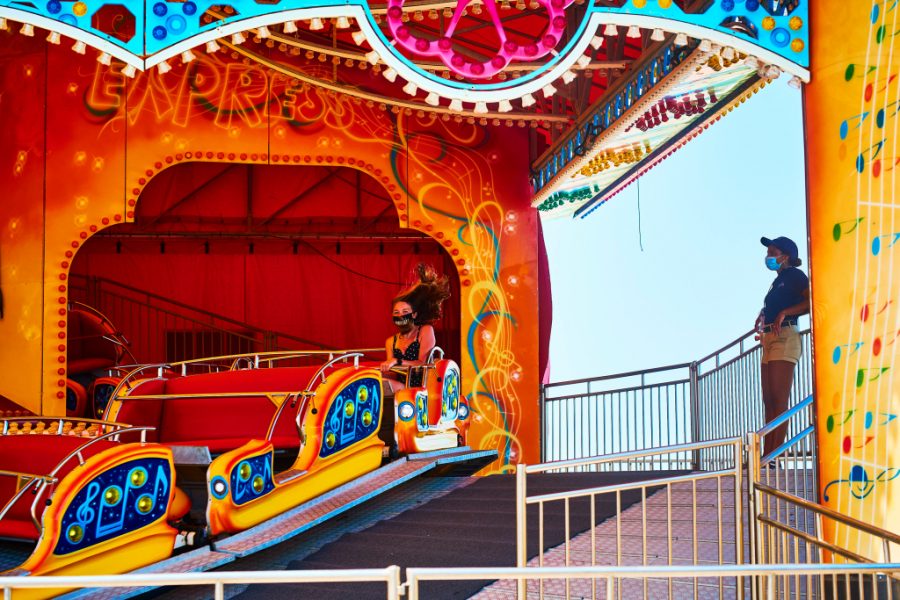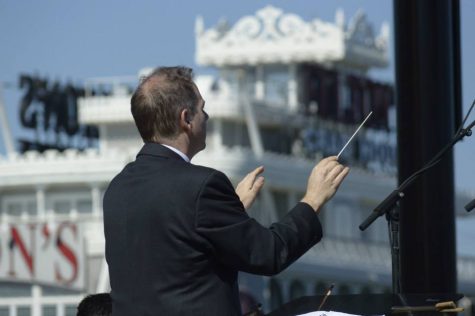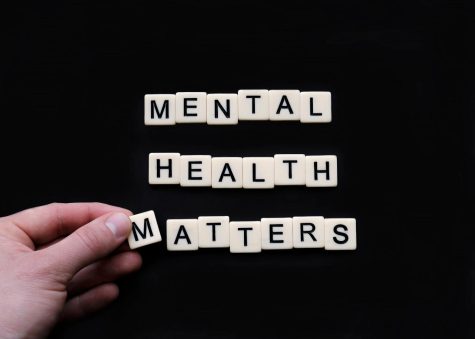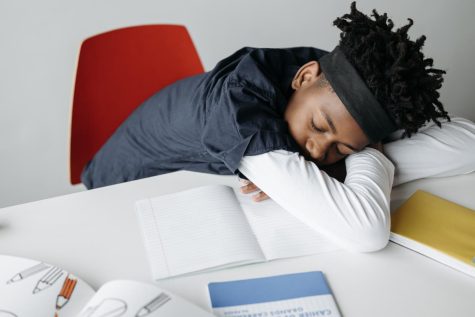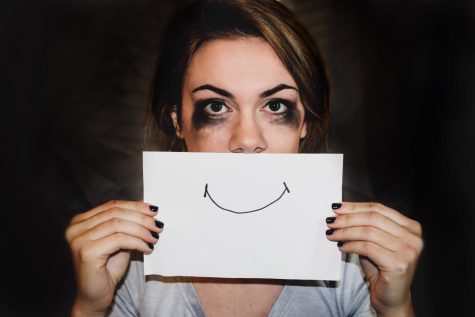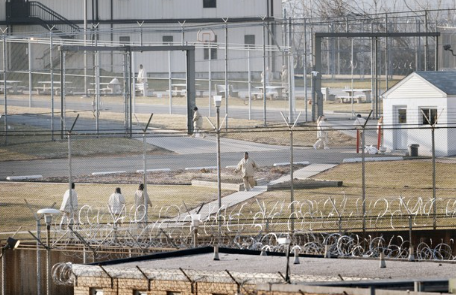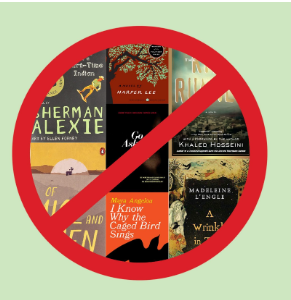The Second Wave of COVID-19 in NJ Sparks Fear of New Restrictions
A lone rider on the Musik Express attraction in Seaside Heights, N.J., on July 2, 2020.
November 21, 2020
New Jersey had successfully beaten back COVID-19 in the earlier days of the pandemic, but now an alarming second wave of the virus is sweeping through the state. Officials say that the second wave of cases in NJ could peak in the first quarter of 2021. However, currently, NJ is experiencing record-breaking increases in positive cases. On Thursday, October 29th, 2,104 new COVID-19 cases were confirmed as well as 12 additional deaths. This was “…the first time in six months that New Jersey has reported successive days of more than 2,000 positive tests,” according to Rob Jennings, a reporter from NJ.com. On Saturday, November 7th, 3,207 cases had been detected, which is the highest increase within a single day since this past spring. With COVID-19 cases continuing to grow throughout the state, Governor Phil Murphy and his administration set additional restrictions on Monday, November 16th to help combat the spread of the virus. These restrictions limited the number of people attending indoor gatherings to 10 and outdoor gatherings to 150. However, these restrictions do not apply to certain weddings, funerals, and religious or political gatherings.
Especially since the holiday season is around the corner, family gatherings will increase the likelihood of being exposed to the virus. Governor Phil Murphy urges residents to refrain from inviting any extended family or anyone outside of their household to reduce the possibility of diffusion of the virus. “I would encourage everyone to follow the CDC’s guidelines and plan for a smaller dinner with your immediate household family only. We do not want anyone’s Thanksgiving to lead to more cases of COVID-19,” he said, echoing the warnings given by the White House’s top infectious disease specialist, Dr. Anthony Fauci (Jennings).
Businesses in New Jersey have remained open. Malls, retail stores, restaurants with outdoor seating, and daycares opened in June, while amusement parks, casinos, and restaurants with indoor seating opened later in July. Social-distancing is urged in public spaces, and masking has been enforced at all times. Entrance is not permitted without an adequate face-covering, and hand sanitizer is provided upon entry, at the exits, and throughout the premises. Many believe the increase in COVID-19 cases is due to these establishments, however, state officials say that the sudden increase in cases is linked to informal gatherings inside homes rather than students attending school or gathering in other indoor facilities.
New Jersey schools, along with many other schools in the United States, have seen an increase of COVID-19 cases due to large social gatherings outside of school, especially from the Halloween parties that took place a few weeks ago. For example, schools in Wayne, New Jersey, moved to complete remote instruction for the week of November 9th due to multiple positive cases being detected. Many of the students who attended those parties have younger siblings in other grade levels within the public school system, which resulted in the switch to temporary remote-learning for all schools in the district. Similarly, this could very much happen here at Central, which is why it is important that everyone takes proper precautions and follows the rules and regulations Governor Murphy has put into place.
According to the CDC, the symptoms of COVID-19 can take an average of five to six days to appear, therefore anyone who comes into contact with someone who has the virus within that time frame is also at risk of exposing themselves, which is why Wayne public schools closed for a week. Keep in mind that this can include family members at home, friends whom they meet outside of school, and teachers/faculty at school. People whom the infectee is unknowingly exposing can include those at higher risk, like the elderly or people with underlying health conditions. The consequences are much more dire for these at-risk individuals if they test positive. Accordingly, it is recommended that everyone wears a cloth face-covering in public settings where other social distancing measures are difficult to maintain. Masking is critical in terms of reducing the transmission of the virus from person to person. They provide a simple barrier to help prevent respiratory droplets from traveling into the air and onto other people when the person wearing the mask coughs, sneezes, talks, or raises their voice. Previously, the CDC stated that wearing a mask only prevents infected people from spreading the coronavirus. Yet, recent studies report that masking can protect the wearer, as well.
Governor Phil Murphy said he would not rule out another lockdown as COVID-19 case numbers spike in the state. “If we have to shut the whole place down, we will,” Murphy told Yahoo Finance. “We were one of the first if not the first states to do that in March. I just hope we can avoid it again this time” (Stimson). In short, Covid-19 is a virus that needs to be taken seriously, and every individual needs to do their part in order to push these numbers back down.
